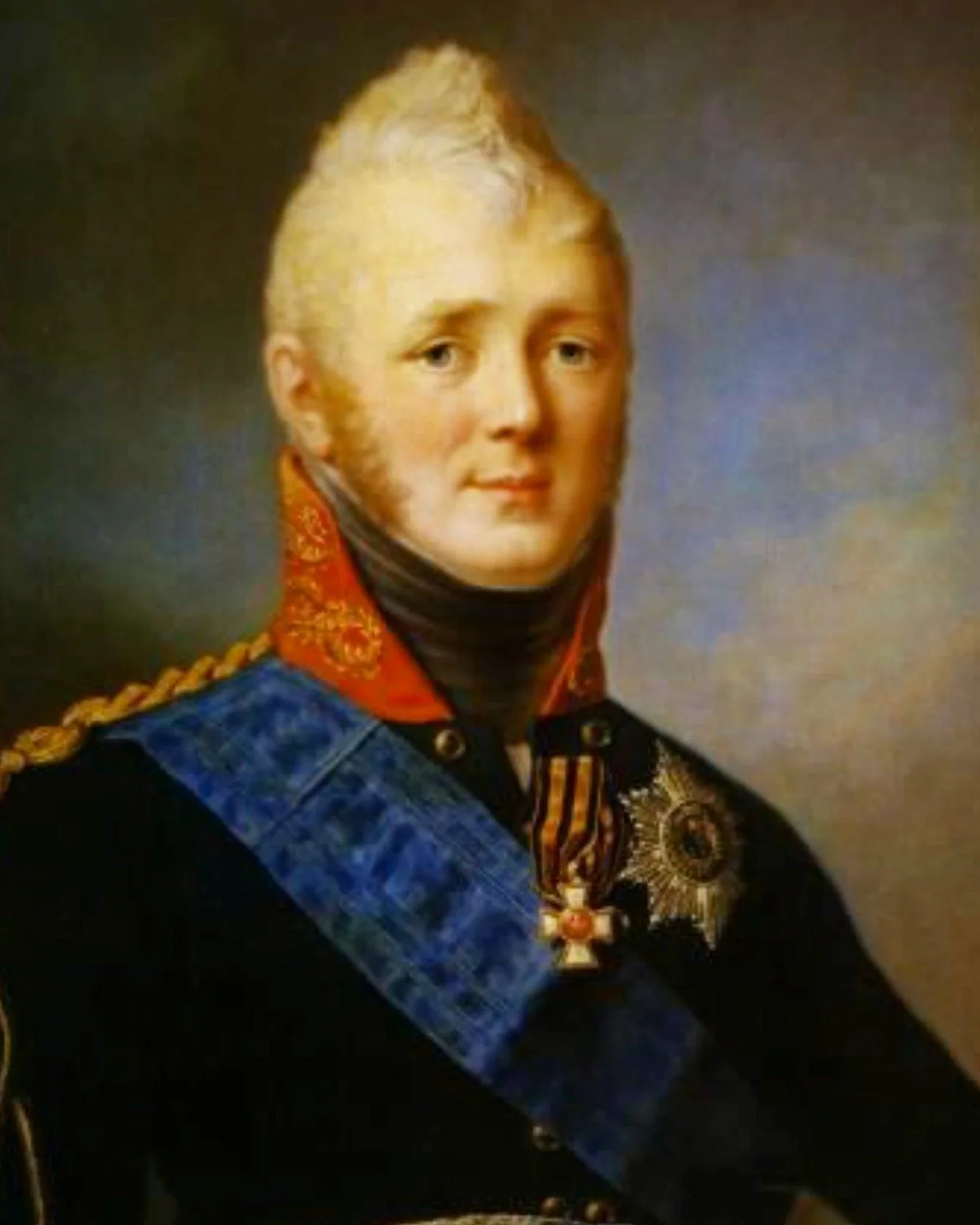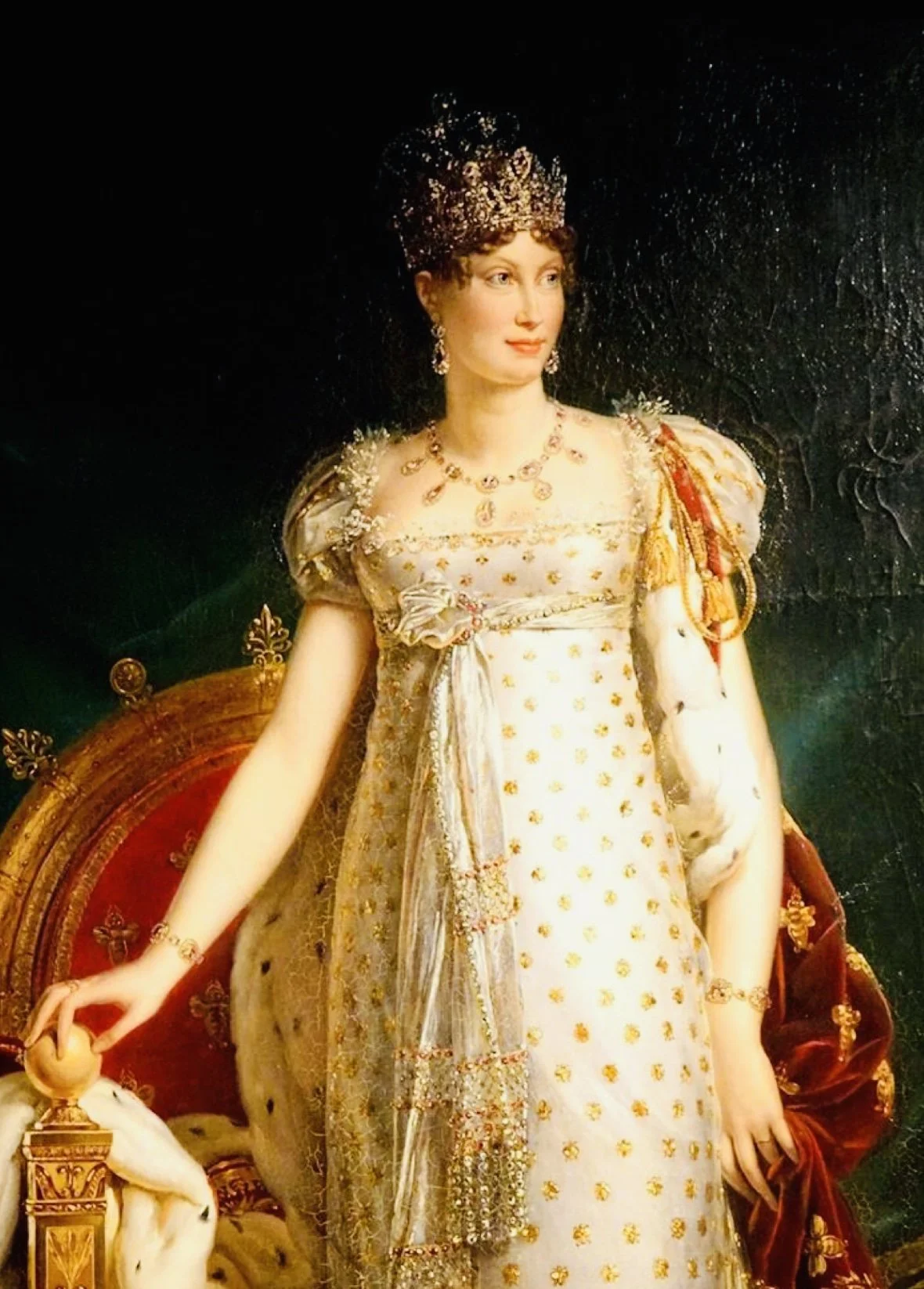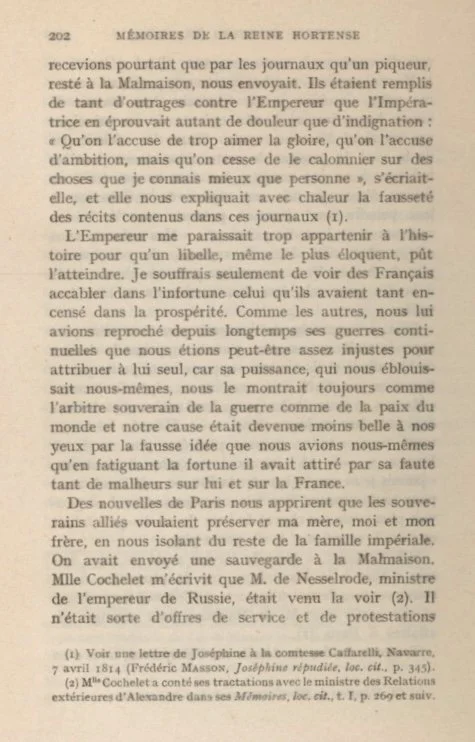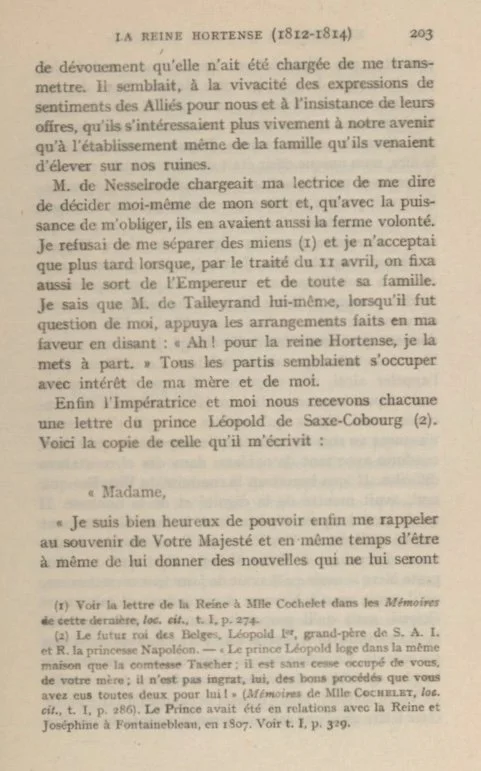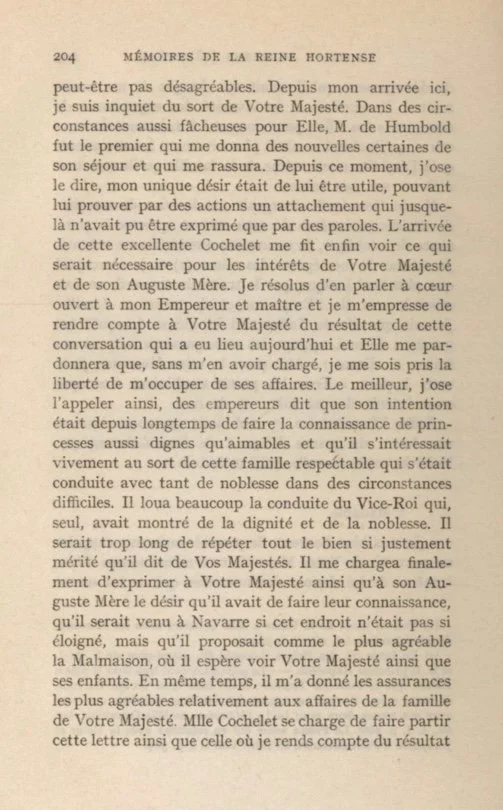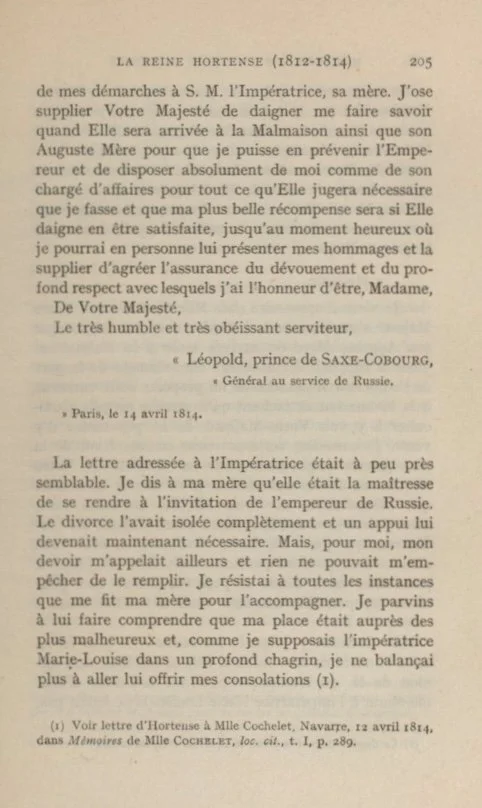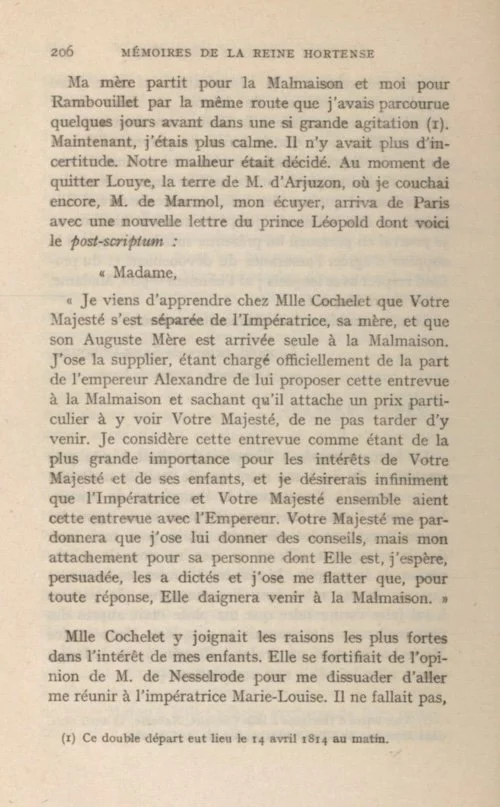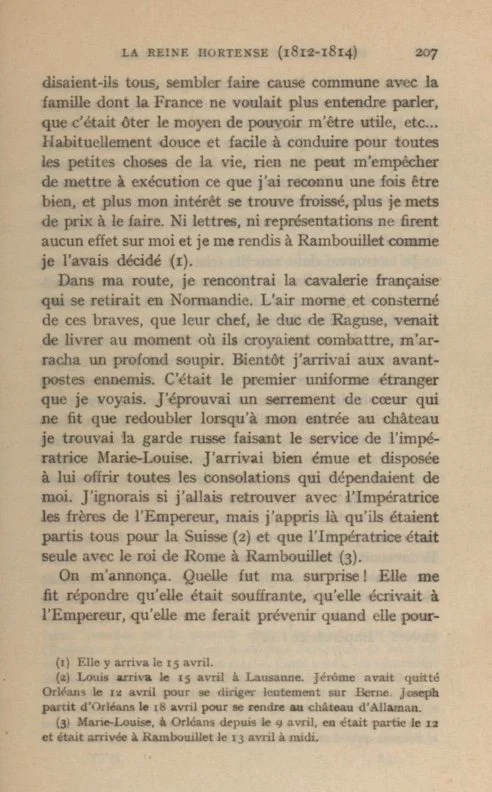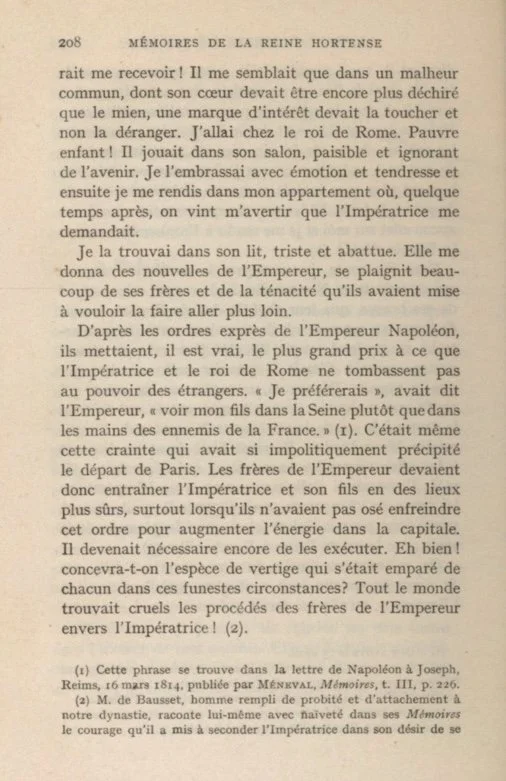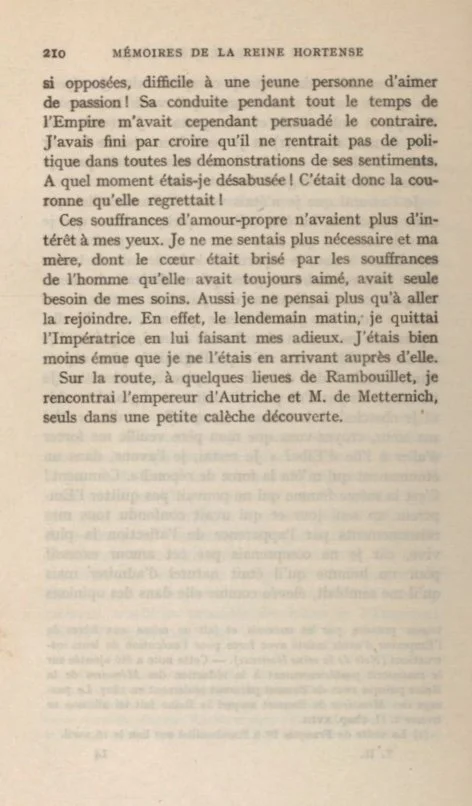Let’s have another look at Hortense’s Memoirs. If you want to read the book it is available for free at the side bar in English and French. Use the widget on the sidebar to translate the text below into pretty much any language.
Hortense continues to show how true intentions were being made clear all over as the enemies of France take over that nation from within and without.
Marie Louise finally reveals that while Napoleon had believed he was in an authentic marriage, she had been putting on pretty much nothing but an act. She had been really nothing more than a global spy system handier to Napoleon. This act on Marie Louise’s part had been skillful enough that she was able to fool both Hortense and Napoleon! Yet for some reason Marie Louise let that mask slip in front of Hortense while her role in the big script was in transition.
In this passage, we also see that the enemies of France are working over time to get Hortense under their hidden hand control. They have a new seductive handler they are going to trick Hortense into accepting. What is always surprising - speaking myself as a target - is always just how many are in on the game. The game always turns out to be even bigger than I had thought at first.
The Controllers first move when they want to trick someone into accepting one of their handlers - in my experience - is always love bombing. We see what this looked like when they launched this now very well worn tactic on Hortense in 1814.
Hortense’s memoirs continues:
Fortune he had wearied her and thus drawn disaster on himself and on all France. News reached us from Paris that the allied sovereigns wished to save my mother, my brother and myself by isolating us from the rest of the Emperor's family. A special guard had been dispatched to protect Malmaison. Mademoiselle Cochelet wrote me that Monsieur de Nesselrode, one of the Russian Emperor's cabinet ministers, had come to see her. She had been asked to transmit to me all sorts of expressions of respect and offers to do anything possible for me. Indeed, the terms in which the allies inquired after our welfare were so excessively cordial, their offer of assistance so pressing, that it seemed as though they were more interested in what became of us than in the fate of the family who were coming back into power on the ruins we left behind.
Monsieur de Nesselrode asked my reader to inquire just what my projects were for the future as his masters had both the power and the wish to carry out any plans I might have. I refused to separate myself from my parents, and I accepted favors only after the treaty of April 11 had settled the fate of the Emperor and the other members of his family.
I know that even Monsieur de Talleyrand when my future was being discussed insisted that my desires should be carried out, saying, "Oh, Queen Hortense! I consider she should receive special treatment." All the various political factions appeared to sympathize with the position in which my mother and I found ourselves.
The Empress and I both received letters from Prince Leopold of Saxe-Coburg
This is a copy of mine:
Madam, I am pleased to be able again to communicate with your Majesty and at the same time convey news that may not prove altogether disagreeable. Since my arrival here I have been worried about your Majesty's fate in view of the painful situation in which she finds herself.
Monsieur de Humboldt was the first who succeeded in furnishing me with exact details as to where she was staying and thus reassured me. From that moment on I may say that the thought of how I might make myself useful to her absorbed me, for, up to now, I have never been able to show my devotion except in words.
The arrival of the kind Mademoiselle Cochelet indicated to me what steps might prove the most agreeable to your Majesty and her August Mother. I resolved to speak frankly to my imperial master and I hasten to repeat to your Majesty the result of the conversation, which took place yesterday.
I trust that she will forgive me if I acted on her behalf without having received any instructions to do so. The kindest of Emperors, if I may call him so, said that for a long time he had desired to make the acquaintance of those princesses whose worth was only equaled by their charm, and that he was deeply interested in the fate of that estimable family which had behaved so nobly in such trying circumstances.
He praised the conduct of the Viceroy highly, who alone had behaved in a dignified and noble manner. It would take too long to repeat in full all the favorable and true remarks the Emperor made regarding your Majesties.
He finally asked me to convey to your Majesty as well as to her August Mother his desire to make their acquaintance. He would have gone to Navarre to call on them had this spot not been so remote, but he suggested they meet him at Malmaison as being nearer Paris and more agreeable.
He hoped to see your Majesty there and also her children. At the same time, he conveyed to me the most reassuring news regarding the business affairs of your Majesty's family. Mademoiselle Cochelet has undertaken to convey this letter to her as well as one in which I inform her Majesty the Empress what I have been able to do on her behalf. May I request your Majesty to be kind enough to inform me when she expects to arrive at Malmaison, and when her August Mother will also be there, in order that I may announce the fact to the Emperor in advance.
May I also request her to treat me as her man of affairs, who will attend to anything she may consider necessary. At the same time, I assure her that my greatest reward will be the knowledge that what I have done on her behalf meets with her approval. Until the moment comes when I can in person present my respects and beseech her to accept the expression of my complete devotion and profound respect, I have the honor to remain, madam, your Majesty's most humble and most obedient Servant,
Leopold, Prince of SAXE-COBURG, General in the service of Russia.
Paris, April 14, 1814
The letter addressed to the Empress was very similar. I told my mother that I considered she was quite free to accept the invitation of the Emperor of Russia.
The divorce had completely separated her from the Bonaparte family, and she must have someone to rely on. But as for me, my duty lay elsewhere and nothing could prevent my accomplishing it. I refused to yield to my mother's urgent request that I accompany her. I finally made her understand that I must be where there was the greatest need for my presence and as I felt sure the Empress Marie Louise must be overcome with grief, I could not hesitate a moment longer than was necessary in going to her to console her to the best of my ability.
My mother therefore set out for Malmaison and I for Rambouillet along the same route over which I had passed a few days before in such an agitated state of mind. Now I was calmer. I was no longer uncertain how to act. Our disaster was definitely accomplished. At the moment I was leaving Louye, the estate belonging to Monsieur d'Arjuzon where I had again spent the night, my groom arrived from Paris bearing another letter from King Leopold of which the postscript was as follows:
Madam, I have just been told by Mademoiselle Cochelet that your Majesty was no longer with the Empress, her mother, and that her August Mother would arrive alone in Malmaison. May I implore her, since I have received special instructions from Emperor Alexander to invite her to this conference at Malmaison, and know he is particularly anxious to have your Majesty present at it, not to delay her arrival there. I consider that this interview is of the greatest importance in deciding the future of your Majesty and of her children and I am extremely anxious that both the Empress and your Majesty attend this conference. Your Majesty will please forgive me if I seem to offer my advice. I trust she is sufficiently familiar with my attachment to her cause to realize that my action is prompted entirely by devotion and I hope she will prove this by graciously making her appearance at Malmaison.
Mademoiselle Cochelet added a number of arguments regarding my children. She based them on Monsieur de Nesselrode's opinion that I ought not to return to the Empress Marie Louise. They both agreed that it was most inadvisable for me to seem to identify my cause with that of a family whom France did not wish to hear spoken of again.
To do so would prevent my making myself useful to my country in the future, and so on and so forth. Although generally docile and easy to guide where the little things of daily life are involved, nothing can prevent me from executing what I have decided should be done.
The more harm it seems likely to do me the more I insist on accomplishing it. Neither letters nor arguments had any effect whatever on me, and I set out for Rambouillet as I had decided to do. On my way I met French cavalry retreating into Normandy.
The dejected and dismayed appearance of these soldiers whose cause their commander the Duc de Raguse had betrayed at the moment when they believed they were going into action made me sigh profoundly. Soon I caught sight of the enemy's outposts. It was the first foreign uniform I had seen. I felt a pang of grief, which grew more keen as on arriving at the château I found Russian guardsmen waiting on the Empress Marie Louise.
I arrived deeply touched and prepared to offer her all the consolation that was in my power. I did not know whether I should find the Emperor's brothers with the Empress, but I heard that they had left for Switzerland and only the Empress and the King of Rome remained at Rambouillet.
My visit was announced. What a surprise awaited me! The Empress sent back word that she was not well, that she was writing the Emperor and would send me word when she could see me. It seemed to me that in the midst of our common misfortunes, at a time when her heart should be still more deeply wounded than mine, a sign of sympathy should comfort her and not disturb her.
I went to see the King of Rome. Poor little fellow! He was playing about in his sitting-room, quietly, ignorant of what the future held in store. I embraced him effusively and tenderly, after which I retired to my apartment, where a little later I received word that the Empress wished to see me. I found her in bed, sad and depressed. She asked for news of the Emperor, complained bitterly about the conduct of his brothers and their persistency in insisting that she go farther away.
This was, however, in accordance with distinct orders given by the Emperor Napoleon. The Emperor was most anxious not to have the Empress and the King of Rome fall into the hands of strangers. He had declared, "I should rather have seen my son in the Seine than in the hands of France's enemies."
It was fear of this eventuality which had caused that unwise departure from Paris. It was natural, therefore, that the Emperor's brothers should have attempted to carry off the Empress and her son to some place of safety, especially as they had not dared infringe this order even when, by doing so, they would have increased the energy of the capital to defend itself. Thus, these instructions must have seemed highly imperative. Yet, is it possible to conceive that mental turmoil which overcame everyone in these hours of trial?
Everyone considered that the Emperor's brothers had treated the Empress cruelly. She asked me what my plans were. I replied that my only idea had been to come to her and offer her my consolation. This seemed to embarrass her and she remarked: "I am expecting my father tomorrow morning. I shall be very glad to see him all alone. Moreover, he does not know you, and I fear he would be constrained before you."
I assured her that the only reason for my presence at Rambouillet was the hope that I might be useful to her in some way, that I had acted entirely on impulse, but not being able to do anything I should leave the following morning to go back to my mother, who was most anxious to have me with her.
This explanation seemed to satisfy her. "You are more fortunate than I am," she said. "No one has abandoned you and I have hardly a handful of people to wait on me." What was most on her mind, however, was her meeting with her father the next day. I could not understand why this should upset her so, and I was trying to reassure her when she suddenly said to me, "Ah, sister, do you think it possible that my father will insist that I go to the island of Elba?"
I confess I was so astonished I did not know what reply to make. Was such a thing possible? Here was the woman who swore she could not be away from the Emperor twenty-four hours at a time and whose pretense of affection had baffled entirely my theories by its intensity. I at first could not believe that a woman brought up in the atmosphere she had lived in could conceive a violent affection for the Emperor, although I thought it quite natural she should admire him.
Her conduct during the years of the Empire had persuaded me that I had been mistaken. I had finally become convinced that no political scheming lay at the bottom of her demonstrations of affection.
At what a moment did I discover the truth! So it was only the crown she regretted. This grief was too entirely due to wounded self-esteem to appear important to me. I felt that my mother needed my presence more. There was a heart which had been broken by the sufferings of a man she had always loved. She alone really required my care. My only thought was how I might get to her the quickest. The following morning, I made my farewells to the Empress. I was much less wrought up than I had been when I arrived. On the highway a few miles from Rambouillet I met the Emperor of Austria and Monsieur de Metternich driving alone in a little open calash.
The original French is available below:

